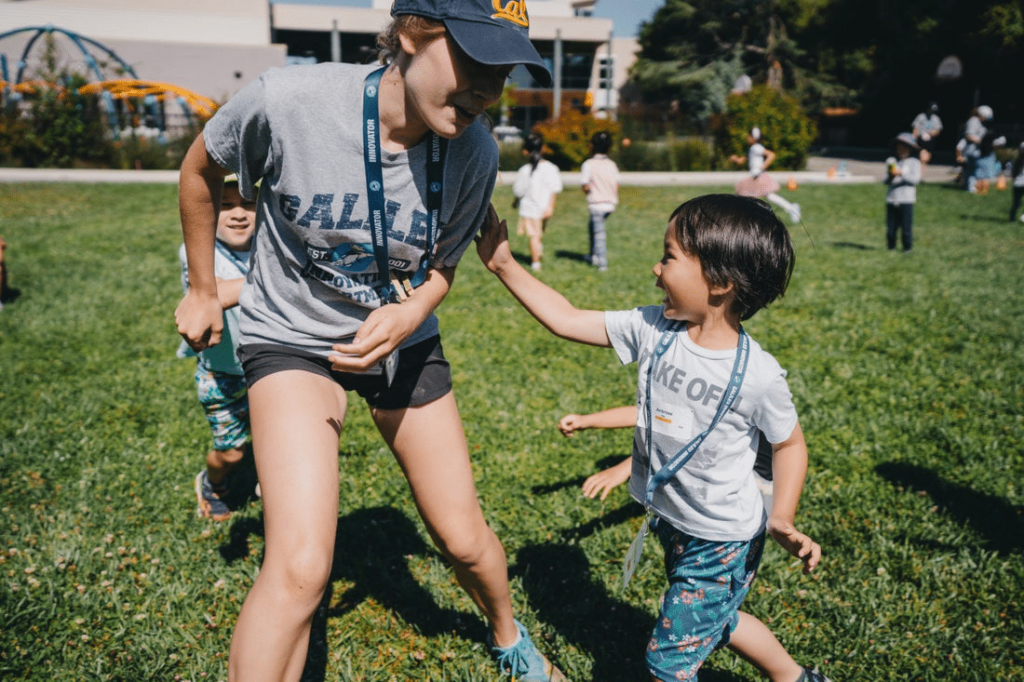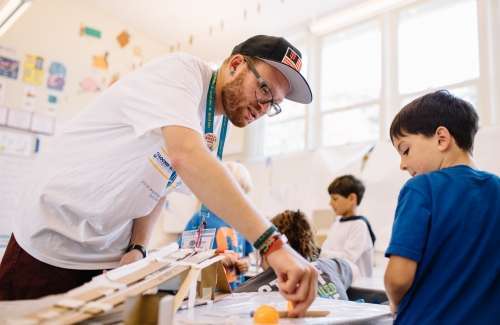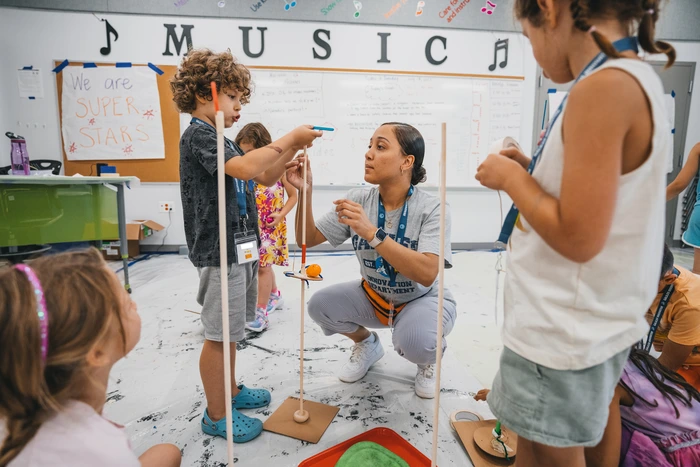10 real-life ideas to manage your kids – from the experts
Have you ever been asked: If you could invite anyone you wanted over for dinner, who would you choose? For many of us, our answer a few months ago would probably have been different than the one we’d give today. Now, we’re stuck at home balancing kids, work, self-care and relationships all day – every day – in the same house. We just want someone to tell us how to do this. What silver bullet ideas, game-changers, or expert advice might lighten this load?
The Galileo headquarters team is full of leaders that have worked with kids for decades. They’ve taught in classrooms, led companies, and gotten pied in the face. They’re parents, professionals, spouses, friends, and they’re working on creating virtual camps while they entertain and teach their own littles at home.
In this three-week series, Galileo leaders will share their tips for approaching this pandemic and all of its enigmatic challenges as parents, professionals, and innovators. This first post will focus on something they are true masters at: helping your kids be their best. Here are ten ideas for managing your wild things at home:
#1: Be a channel, not a dam.
Maybe you have a walk around the neighborhood scheduled at the end of your work and homeschool day every day. Sometimes that walk might need to include sprinting and skipping and jumping and twirling. Sometimes that walk might need to be extremely slow to allow for investigation of every dandelion and ant. Sometimes that walk might need to include a scavenger hunt and guided activities. Sometimes that walk might need to include music. Sometimes that walk might need to include snacks. Sometimes that walk might need to be a movie on the couch instead. Just me?
—Maggie, VP of Programs and mama of three

#2: The only way to live is positive.
Whenever things are going off track in the day with kiddos—which could also apply to adults!—find something to focus positive energy on. If the kids are not following your directions, what are they doing that you can appreciate and compliment?
—Maggie again, dropping knowledge
#3: Find the carrot, and hold it tight.
If there’s something your kids are particularly motivated by, channel that motivation into having them help around the house. For example, our carrot is movie night. It’s become routine that my kids know that movie night won’t happen until their rooms and the living room are cleaned up, which helps me feel like I’m not living in chaos all the time. It’s also not like pulling teeth; they eagerly do it, which is another mental load removed for me.
—Shauna, Director of Professional Development and Training and mother of two
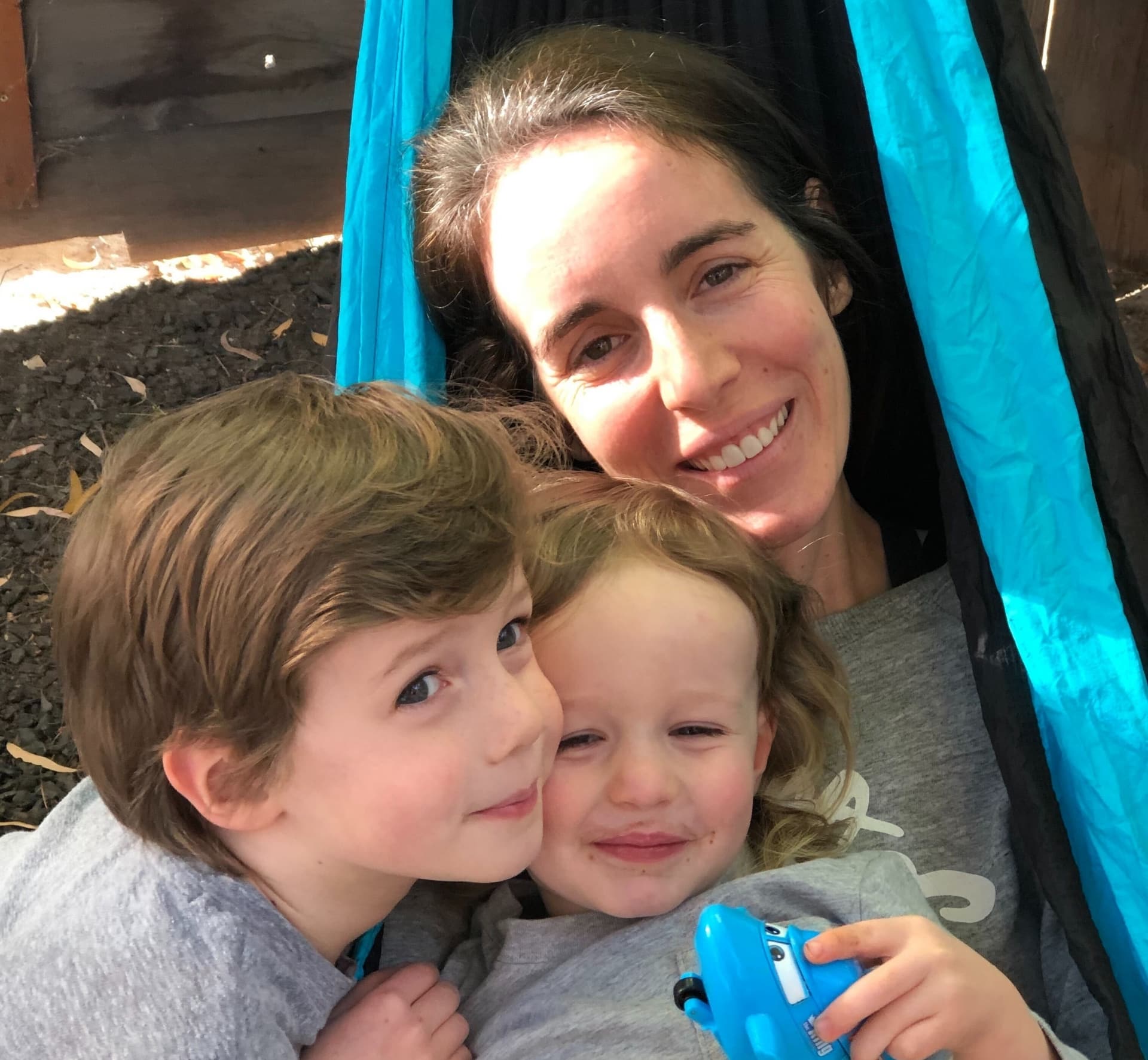
#4: Let them work it out.
I’ve started releasing myself from feeling like I’m responsible for getting my kids through every sibling fight. Even if I’m near them, as long as they aren’t being unsafe physically, I try to bite my tongue and let them work through it themselves. If they come to me to fix it before talking to their sib, I encourage them to talk it out and make a plan, so they aren’t always relying on me to get them through it. This approach takes the pressure off of me and helps them learn how to work through challenges with peers without adult intervention.
—Shauna again with the wisdom
#5: Narrate the day.
For a grumpy toddler, a quick walk around the block is like hitting the reset button on his attitude. As we get closer to home, we start to talk about what we’re going to do when we get inside, being careful to set expectations. “We’re almost home. When we get inside, we’ll take off our shoes and hats, and we’ll get out your train track so you can play while mama works at the table.” This isn’t a question, and I find that’s key with the two-year-old. I need to tell him what’s going to happen, and in what order. We narrate everything. Every single thing. To an annoying degree. But it grounds him in what’s happening and prepares him for what’s coming next. I give him the rundown, then as it’s happening I ask him what’s coming next, and he tells me, instead of me telling him. That makes it feel a bit more like he’s in control and making decisions, so he’s more apt to actually do the thing.
—Erin, Associate Director of People Ops and mom of two
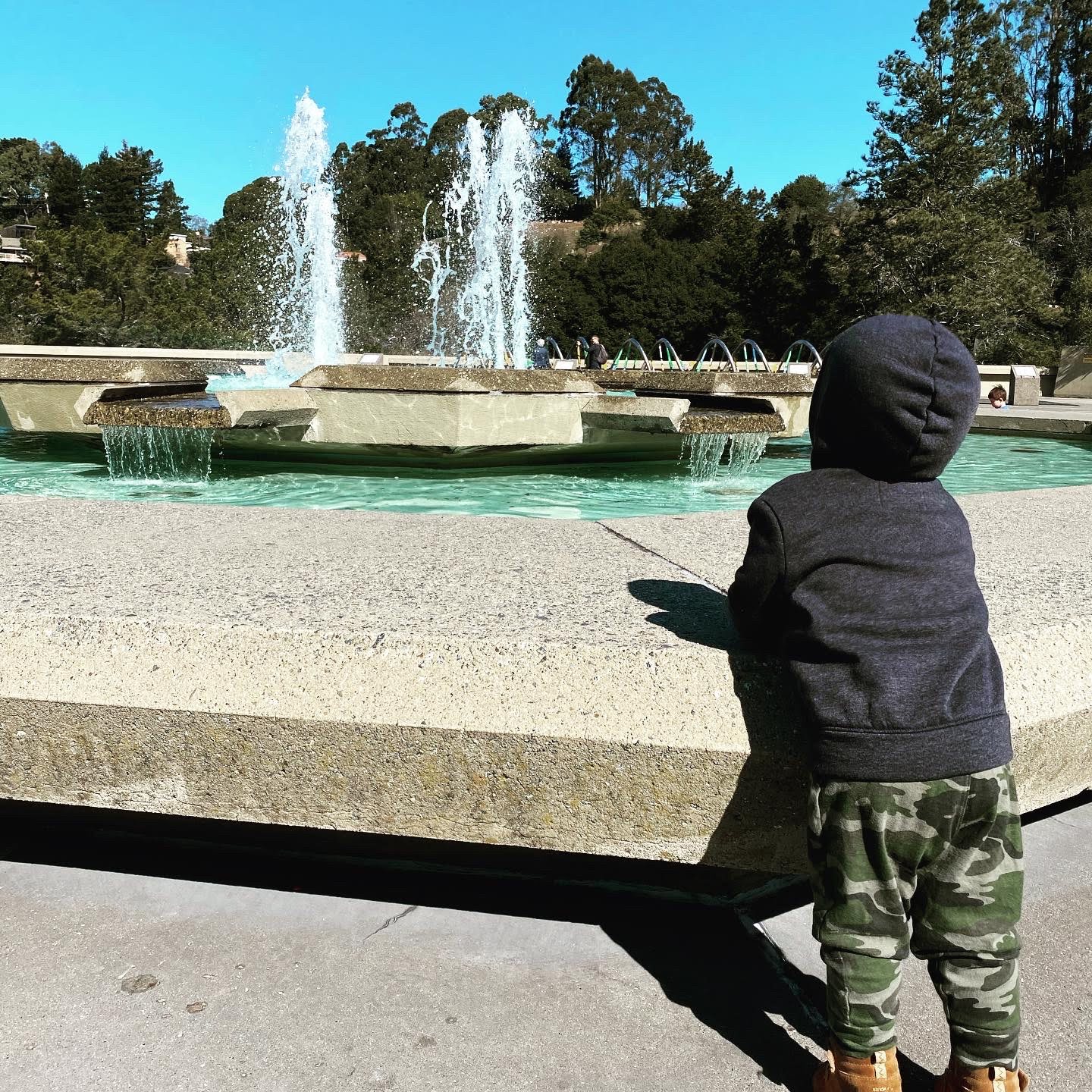
#6: Have a soundtrack.
Using music as a transition helps with routine, flow, and fun! Using a morning song, clean-up song, and even subject-related songs for schoolwork can help kids know what’s coming next.
—Aubrea, Regional Director & former kindergarten teacher
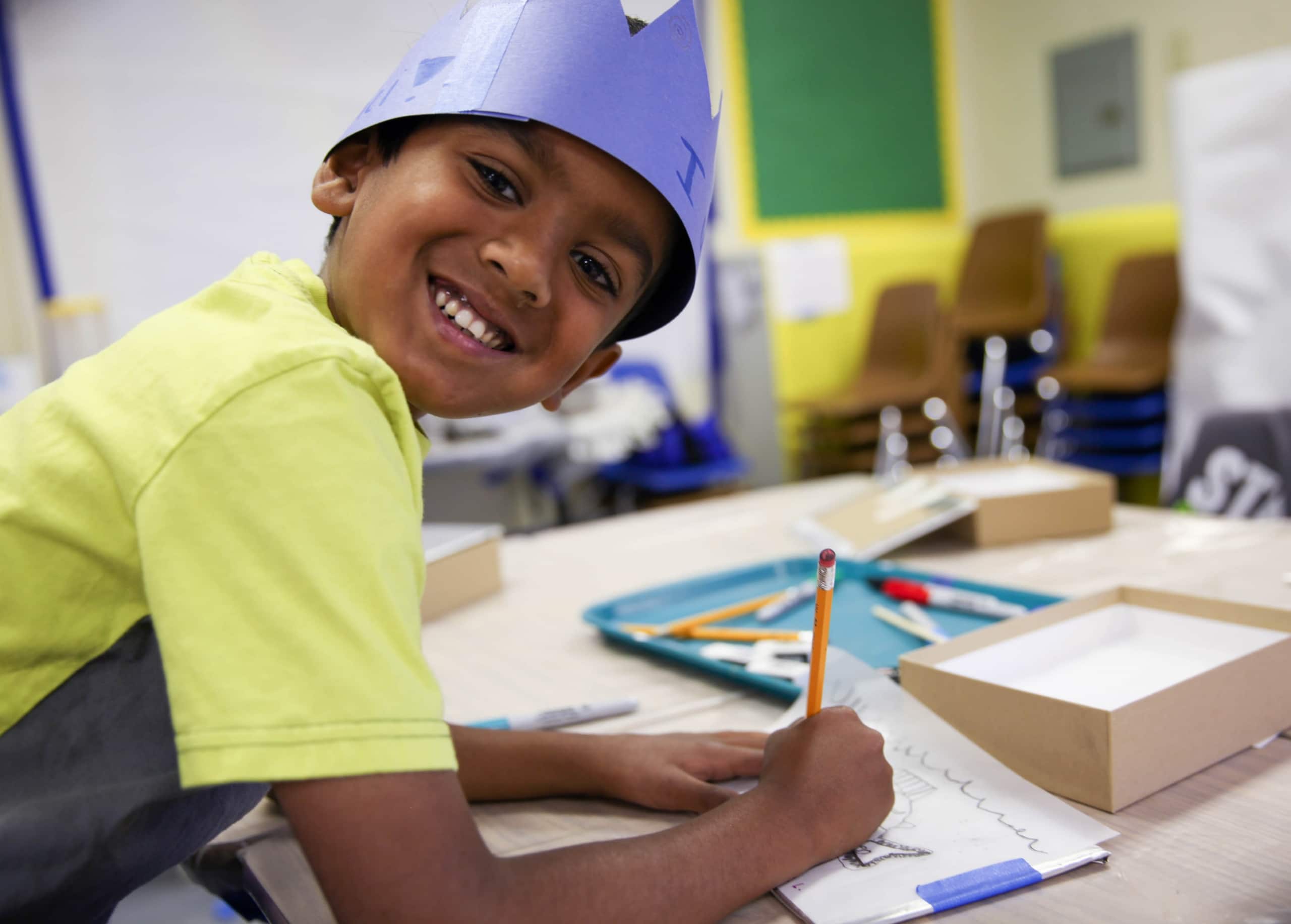
#7: Say yes to your kids.
Find a way to say “yes.” Collaborate on an idea to come to something that’s actually doable in this time. For example:
My daughter: “Mom, I want to go to the beach!”
Me: “Oooh, let’s turn the backyard into a beach and drink fruity drinks.”
Further brainstorming leads to a swimsuit fashion show and getting out the old Barbie pool. Another component of this is to give a clear time frame so that expectations are set. Beach Day is going to happen on Wednesday at 4pm because that’s when we both have a break from school/work, and before that can happen, we have to pick up the last adventure we created in the living room. This helps decrease the number of times she’s asking for the same thing.
—Ashley, Regional Director and mother of two
#8: Say yes to new ideas.
Another part of saying “yes” that is unique to this time is saying “yes” to things I normally wouldn’t give a second thought to. Want pink hair? SURE! Let’s have the whole family do it! Want to have sister slumber parties five nights a week? I’ll grab the sleeping bags! My saying yes gives my daughters a sense of ownership over this time. They get to call many of the shots, and it’s so cool seeing their minds being blown when I okay the craziest of requests.
—Ashley again, really laying it down
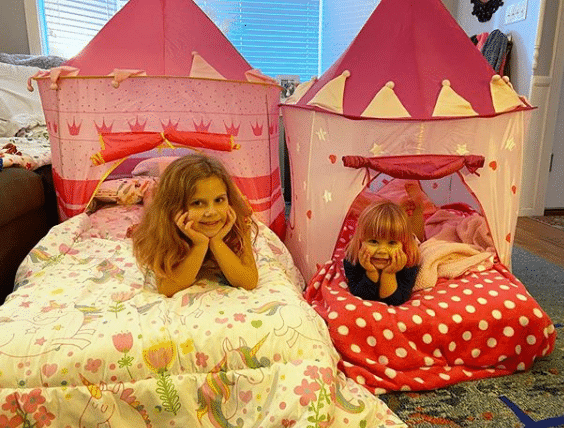
#9: Disarm youR kids with goofiness.
My silver bullet parenting hack is to be an absolute goofball. Try to turn the things that are not serious boundary-crossing behavioral issues into a game so that kids can relax and go with the flow. Whenever my three-year-old is stuck in a refusal rut, for example, I get on his level and ask him really ridiculous questions that he’d never say no to. He knows he has my attention then, and he laughs and loses his iron grip on exerting his defiance.
My kids were stuck in a negative attitude yesterday, so I stuck my shirt over my head (I could sort of see through it) and poured glasses of water, pretending I couldn’t see anything. I dance around like a goofball or create pretend characters, voices and all, that they have conversations with. On walks, we look at the way the backs of cars all look like faces and we imitate the expressions they’re making. All of our kids are working so hard to adjust to this change in rhythm and environment. If they get stuck in a bad attitude, I blame it on COVID, not them. Then I try to bring a little joy, ease, or lightness if I’ve got it in me.
—Sarah, VP of SoCal Operations and mama of two
#10: Choose your kids.
There have been many moments where work has been stressful for me, and just then one of my kids comes to me needing help with something. In the beginning, I’d get frustrated by the situation, and usually, my kid lost out in that battle. I’d send them off and tell them I’ll be down in an hour and to figure it out on their own. Now, I’ve normalized that these requests are just going to happen and my kids need me just as much as my co-workers in those moments. I take a breath from the work stress, look my kid in the eye, and help them out. It’s helped me feel so much better and more grounded. When you step back and look at the bigger picture, choosing your kid will never feel like the wrong thing.
—Diana, VP of People and mom of two
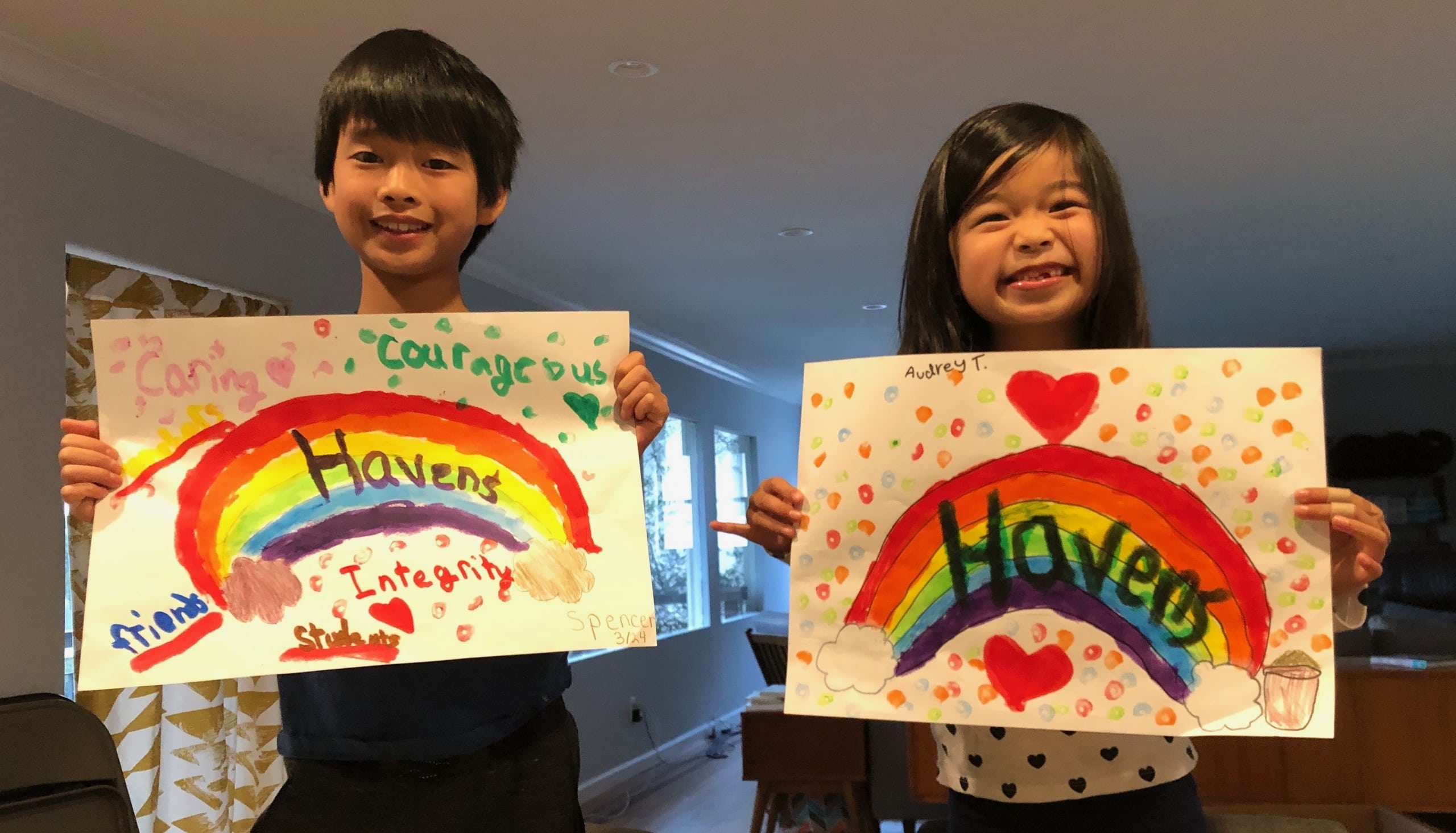
Remember that all of these ideas came from ideating, testing, creating, and redesigning how we’re supporting our families at home. We’re doing our best to fail forward, give ourselves grace and recognize the courage that is coming from kids of all ages, all over the world during this time.
Look out next week for tips from Galileo families on creating a rhythm for our kids, and for a share out of the activities and resources that our kids have loved the most. Until the next time we can sit across a table from one another, we’re sending strength, determination, and good old-fashioned camp magic from our families to yours.

